Being an academic scientist can sometimes be pretty discouraging. You’re pipetting away hundreds of tubes, trying to cut down the word count of your grant application or spending too much time on getting that buffer to the right pH.
Throughout these annoying tasks, questions about their purpose might pop into your head. And these can even turn into doubts about your contribution to science. Unfortunately, when thoughts like these manifest, they can lead to frustration and anxiety or even unhappiness.
During the Sunny Scientist project research, 43% of the participants told us they were unhappy with their professional choice. And when we’re unhappy for too long, we don’t even feel the pleasure of working on our projects anymore. Instead, we tend to focus on the stress, concerns and challenges and lose our motivation, hope and purpose for our projects.
Gladly, there is a way to recover your motivation and purpose. Through self-awareness and mindful practises, you can connect to your passion and find what makes you truly happy. Then, it is up to you to act on that.
Connecting your core values to your academic passion
Firstly, to relate to your academic passion vibes, remember what made you take this career path. The most valuable choices we make in our lives are connected to what we truly believe in. And one model of defining this part of our character is through the so-called core values.
Core values are concepts that you are truly convinced of; that drive your every decision. Often, when we find ourselves in situations that go against our core values, something just feels “off”, not right or even frustrating. Hence, knowing your core values helps you focus on what really matters to you and make better decisions for yourself.
Honesty, Fairness, Respect, Contribution, Challenge, Freedom, Excellence, Communication, Competition and Stability are good examples of core values. Here, you can find a list of core values from which you can choose your own top 2 to 10.
- Status, Power, Social Acceptance, Fame, Stability, Order and Organization, Contribution, Routine, Predictability, Security, Respect, Responsibility, Individuality, Compassion, Continuous growth, Competitiveness, Fairness, Honesty, Reputation, Change, Challenge, Success, Excellence, Independence, Freedom, Self-Commitment, Self-Expression, Ethics, Sustainability, Recognition, Family, Quality of life, Quality time, Attitude, Friendship, Loyalty, Communication, Humility, Empathy, Education, Solidarity
Now I would like to invite you to remember the moment you decided to join academia. Think about the main reason it made you say yes. Try to answer the following questions:
- What made you choose this path?
- What was important to you in that moment of your life?
Then, think about your current way of living.
- How often have you been connected to your core values?
- Are you respecting them with your daily work?
It is important here to understand that there isn’t a right or wrong choice as all decisions have a purpose at the moment they’re made.
If you responded negatively to the last question, there is a need to analyse how this is currently impacting your well-being. Often, not honoured values can be damaging in the long term. In that case, I would advise you to organize an action plan to bring positive change and improve your daily life.
Relating your skills to your academic life
Another important way to measure your own state of happiness is by knowing your best talents and skills. Some people can be great at communicating, listening, getting results, planning, coordinating, solving problems, etc.
Are you taking advantage of your talents throughout your daily tasks? Are you using them when executing your projects?
When you use your special talents as part of your work, days tend to flow effortlessly. A day spent on tasks which don’t bring out the best of you, not only drains energy but is also less productive.
Delegating the least favourite daily tasks can be a smart way to make a day run more smoothly. In case delegating is not an option, find a way to make these tasks more joyful. For example, you could share the burden with your lab buddy or do them while listening to your favourite music. This will help you ease off the tension from your shoulders.
Please see here a list of talents, abilities, and skills so you can identify yours. I would suggest you build your own self-awareness board including your core values. You should always remind yourself of who you really are and what you do best.
- Communication, Focus on results, Leadership, Autonomy, Hands-on, Owner’s thinking, Emotional intelligence, Flexibility and ability to adapt to changes, Creativity, Continuous learning, Critical thinking, Professional resilience, Collaboration and teamwork, Ability to work remotely, Commitment, Capacity for innovation, Time Management, Stress Management, Change Management, Resilience, Self-awareness, Punctuality, Caution, Wisdom, Spontaneity, Empathy, Interpersonal Skills, Decision-making, Conflict Resolution, Skills, Self-motivation, Self-confidence, Work Under Pressure Skills, Attention to Detail, Memory Skills, Logical – Thinking, Listening Skills, Patience / Tolerance, Metacognition, Agility, People Management
Mindfulness for better connection with yourself
Now, fellow scientist, I have one more question for you: What would make you fully satisfied with your career and personal life in 10 years?
Regardless of what you answered in the questions above, happiness cannot wait for the future after you achieved a goal. Being constantly connected to your values and talents together with rational positivity will generate the extra motivation that you need to get out of bed every morning. This is a boost of energy that can keep you in a happy place throughout your academic journey for the next years.
A great way to keep your mind at ease and be consistent with this vibe is through mindfulness and meditation. While we highly suggest a regular meditation practice, being mindful about your actions in every moment helps you connect better with yourself and your purpose.
While doing your daily lab tasks, just pause for a second and look at what you’re doing. Do you enjoy the task? Are you happy doing this task at that very moment?
Here are other ways of practising mindfulness throughout your day:
- Enjoy your meals without looking at the phone or reading anything work-related. Enjoy your meal without any distractions.
- Give attention to people around you when they talk to you. Look at their eyes, pay attention to their facial and body expression. If you don’t understand the other person’s behaviour, don’t overthink, ask. Clear communication is the key to avoiding any people-related stress.
- Remind yourself to take breaks, your mind also needs a rest. Being productive is not the same as working beyond healthy limits. You already have a lot of external pressure, don’t be so hard on yourself.
You can’t allow yourself to be stuck in a reality which does not belong to you. Everything you do in your life should be connected to who you really are.
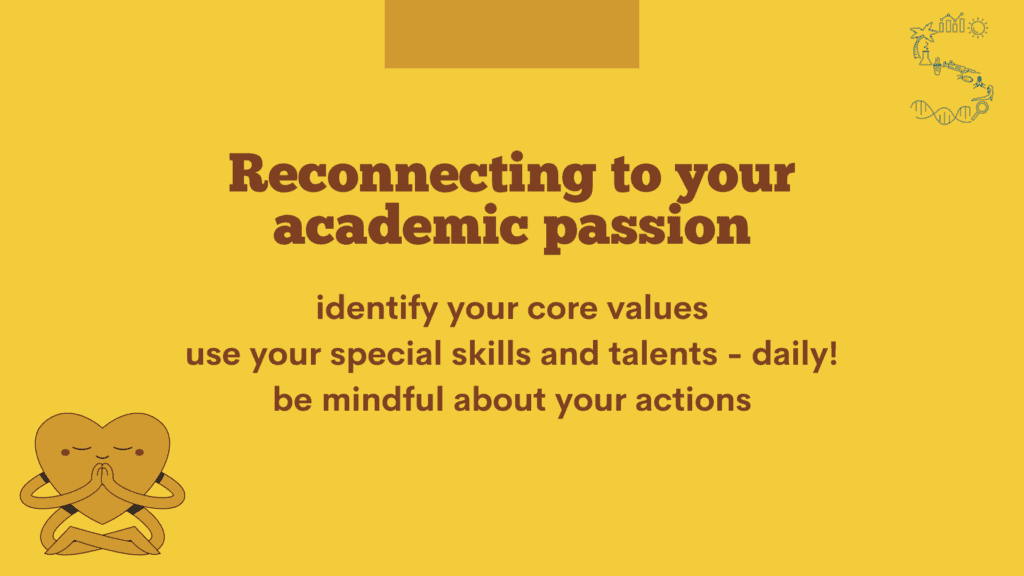
Meditation and mindfulness for inner clarity
As you can see, opening some space in your life will welcome back your identity and scientific passion. To help you make this happen, we invite you to another meditation practise that focuses on connecting you with your inner self.
We created a designated meditation recording for you to find your passion and core values and reflect on how you are realising both with your daily tasks. This recording is part of our meditation medley, which you can purchase through the link below. Or if you’re new to meditation, start with our free meditation recording to see how you get along with it.
Either way, we wish you a relaxing meditation practice.
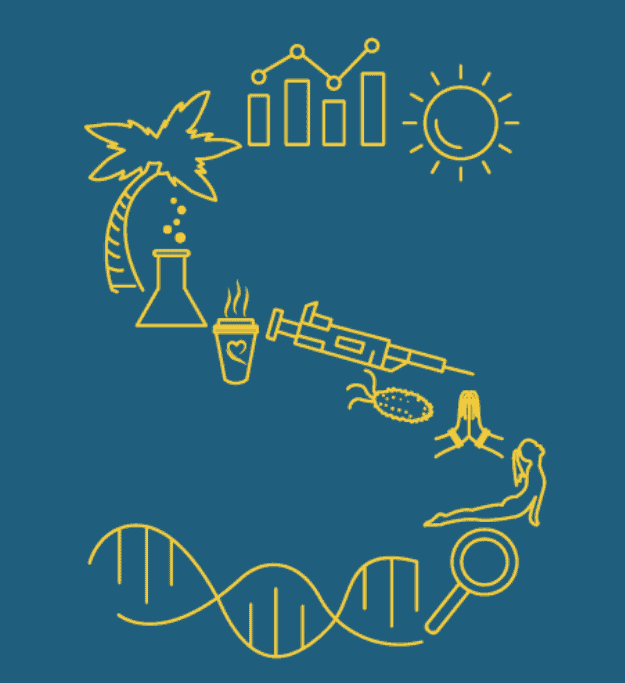

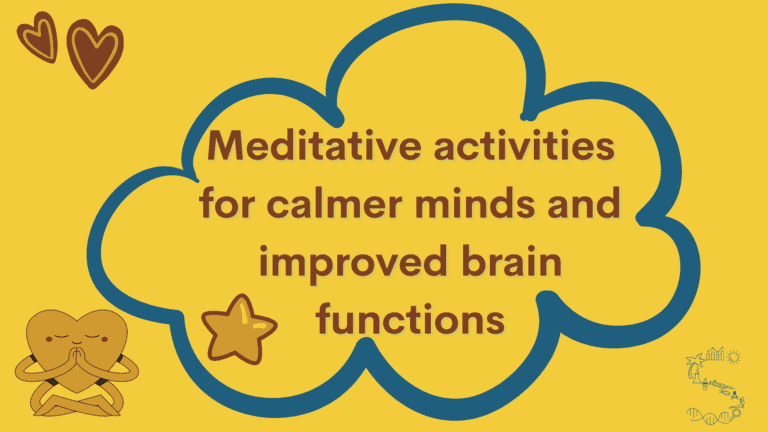

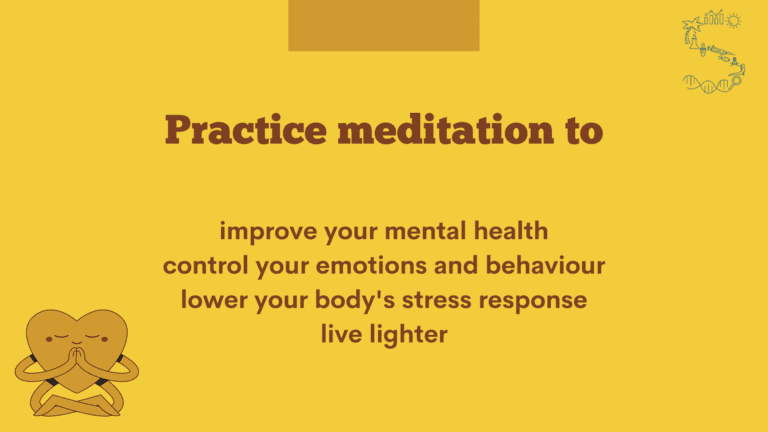
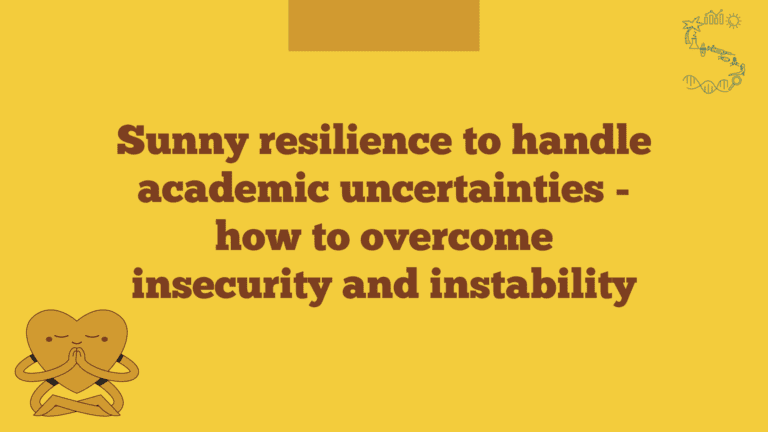
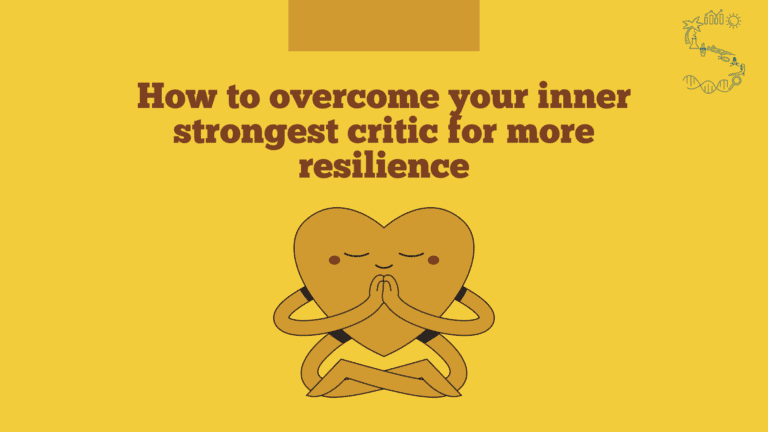
2 Responses